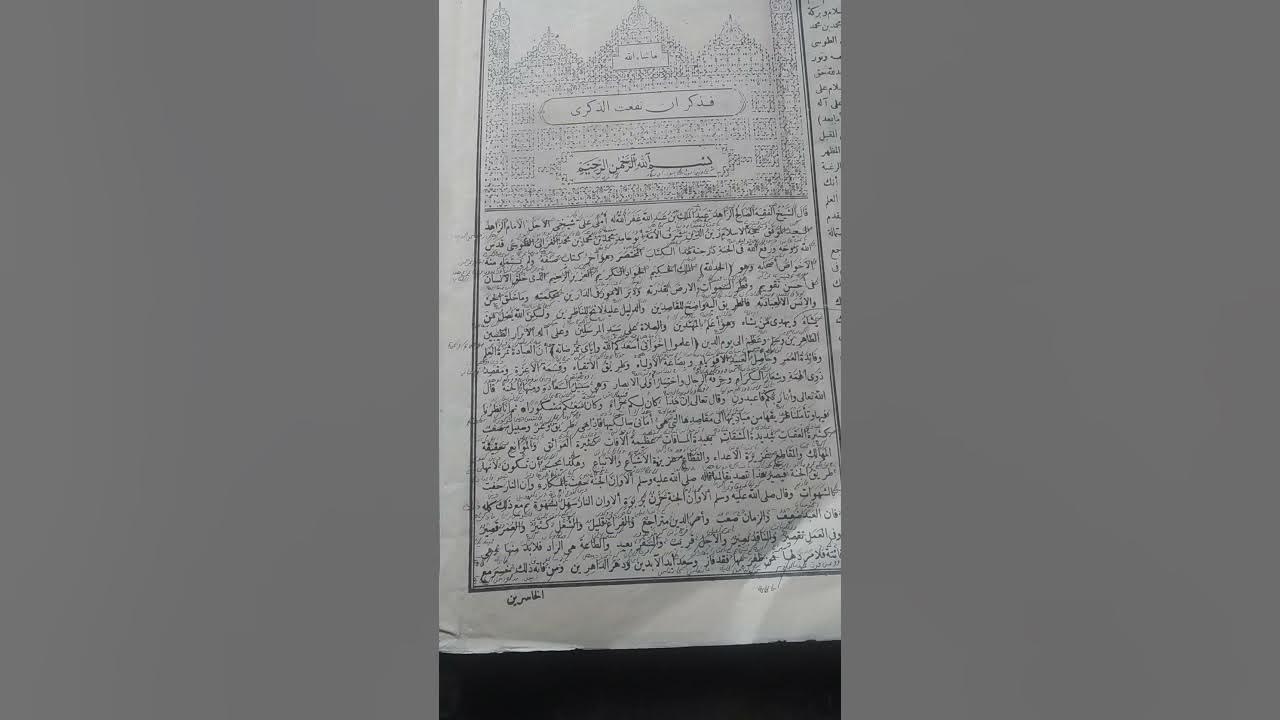Hamba Yang Paling Di Cintai Allah Swt || Ngaji Kitab Wasiatul Mustofa Wasiat Ke Sembilan Belas
Summary
TLDRThe transcript appears to blend religious reflections, prayers, and invocations, with a mixture of Indonesian, Arabic, and Sundanese phrases. It includes references to the Prophet Muhammad (PBUH), Allah, and Islamic teachings about forgiveness, supplication, and submission. The text also conveys a deep devotion to faith, mentioning repentance and divine mercy. Additionally, there are mentions of individuals, possibly the speaker's community or religious figures, and some local phrases interspersed with religious concepts. Overall, the script reflects themes of spirituality, worship, and personal reflection on divine grace.
Takeaways
- 😀 The script opens with a religious greeting, invoking Allah's mercy and blessings.
- 😀 The theme of the script focuses on devotion to Allah and the concept of being loved by Allah through acts of worship, such as prayer and prostration.
- 😀 There is a reference to a specific individual, Abdul Adzim Alaihi, known for being loved by Allah.
- 😀 The script emphasizes the importance of seeking forgiveness from Allah, acknowledging one's sins and the inability to forgive oneself.
- 😀 A part of the script includes a prayer, asking Allah for forgiveness for one's sins, with a reminder that only Allah can forgive them.
- 😀 The phrase 'Robby, Sesungguhnya aku telah menjual mie diriku sendiri' suggests a metaphorical offering or surrender to Allah, symbolizing a deep commitment.
- 😀 The script includes various religious expressions and names, including references to the Prophet Muhammad and other significant Islamic figures.
- 😀 There are mentions of both personal and collective supplications, as well as references to hope for blessings and forgiveness in life and afterlife.
- 😀 The tone of the script incorporates both formal religious language and colloquial speech, blending traditional expressions with more contemporary phrasing.
- 😀 The latter part of the script refers to individual struggles, the concept of repentance, and the desire for divine mercy, showing humility and a desire for spiritual growth.
Q & A
What is the main theme of the transcript?
-The main theme of the transcript revolves around spiritual devotion and the worship of Allah. It includes references to prayers, supplications, and the importance of humility in seeking forgiveness from Allah.
What is meant by 'hamba yang paling dicintai Allah'?
-'Hamba yang paling dicintai Allah' translates to 'the servant most loved by Allah.' It refers to a person who is devoted to Allah, regularly prays, and seeks forgiveness for their sins.
What is the significance of the phrase 'Ya Robbi inni dholamtu Nafsi'?
-'Ya Robbi inni dholamtu Nafsi' means 'O my Lord, I have wronged myself.' This phrase is a supplication where the speaker acknowledges their faults and asks Allah for forgiveness, emphasizing self-reflection and repentance.
What is the meaning of 'Bismillahirrahmanirrahim' in the context of the transcript?
-'Bismillahirrahmanirrahim' means 'In the name of Allah, the Most Gracious, the Most Merciful.' It is a common phrase used by Muslims before starting any significant activity, as a way to invoke Allah's blessings.
Why is the name 'Abdul Adzim Alaihi' mentioned in the transcript?
-The name 'Abdul Adzim Alaihi' refers to a revered servant of Allah, and it is likely mentioned to emphasize the qualities of a devoted and righteous person. 'Abdul Adzim' signifies one who is humble and committed to Allah's service.
What role does 'sujud' play in the context of the transcript?
-In the transcript, 'sujud' refers to the act of prostration during prayer. It is a key act of worship in Islam, symbolizing submission and humility before Allah. The script emphasizes the importance of praying with sincerity and devotion.
How does the script connect the concepts of 'doa' and 'sujud'?
-The script connects 'doa' (prayer) and 'sujud' (prostration) by highlighting the significance of making supplications during sujud. It stresses that the act of praying while in prostration is a powerful way to seek forgiveness and mercy from Allah.
What does the reference to 'Kanjeng Nabi' signify in the transcript?
-'Kanjeng Nabi' refers to 'the noble Prophet' and likely alludes to Prophet Muhammad (PBUH). The reference indicates the guidance and teachings of the Prophet, especially regarding worship and moral conduct.
What is the meaning of 'insyaAllah' in the context of this transcript?
-'InsyaAllah' means 'God willing.' It is a phrase used by Muslims to express hope and trust that their plans or desires will be realized if it is the will of Allah.
What is the significance of 'doa' (prayer) in the overall message of the transcript?
-'Doa' (prayer) plays a central role in the transcript as it conveys the importance of connecting with Allah through supplications. The transcript emphasizes that prayer, especially in a state of humility and repentance, is crucial for receiving Allah's mercy and forgiveness.
Outlines

This section is available to paid users only. Please upgrade to access this part.
Upgrade NowMindmap

This section is available to paid users only. Please upgrade to access this part.
Upgrade NowKeywords

This section is available to paid users only. Please upgrade to access this part.
Upgrade NowHighlights

This section is available to paid users only. Please upgrade to access this part.
Upgrade NowTranscripts

This section is available to paid users only. Please upgrade to access this part.
Upgrade NowBrowse More Related Video

Kultum Ramadhan Hari Ke 27 Praktik adab dikehidupan sehari hari

Kidung Rumekso Ing Wengi Tolak Bala Warisan Sunan Kalijaga

Shab e Qadar Hazar Mahinoo Say Behtar | Molana Muhammad Makki

Pentingnya Bahasa Arab (Ust. Muhammad Khaerul Hadi, S.Pd.)

Adat pernikahan sunda Full version || Tradisi upacara adat pernikahan sunda

nembel minhajul Abidin 1. Mugi Istiqomah
5.0 / 5 (0 votes)